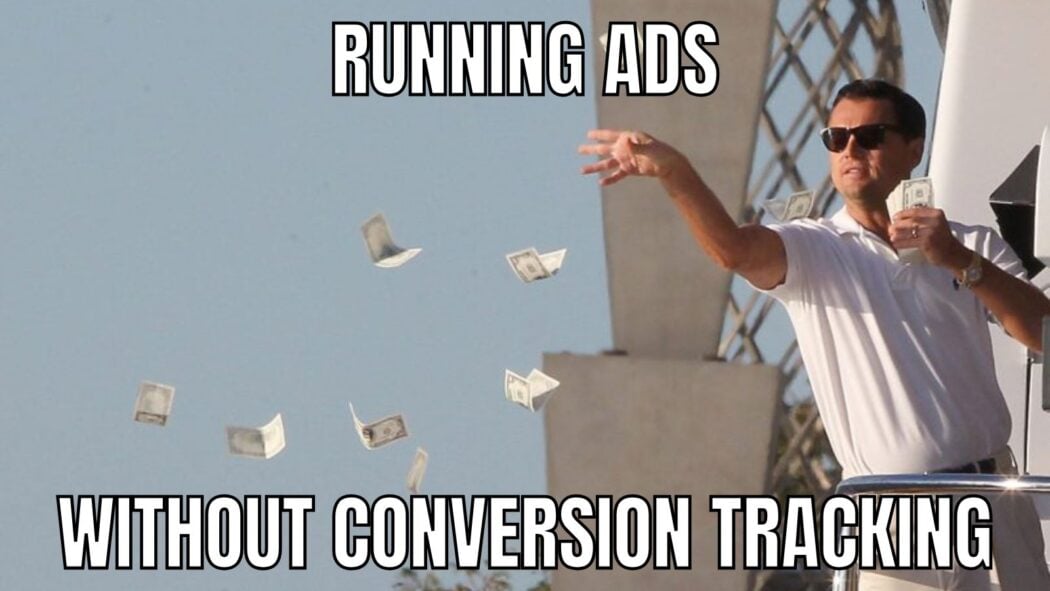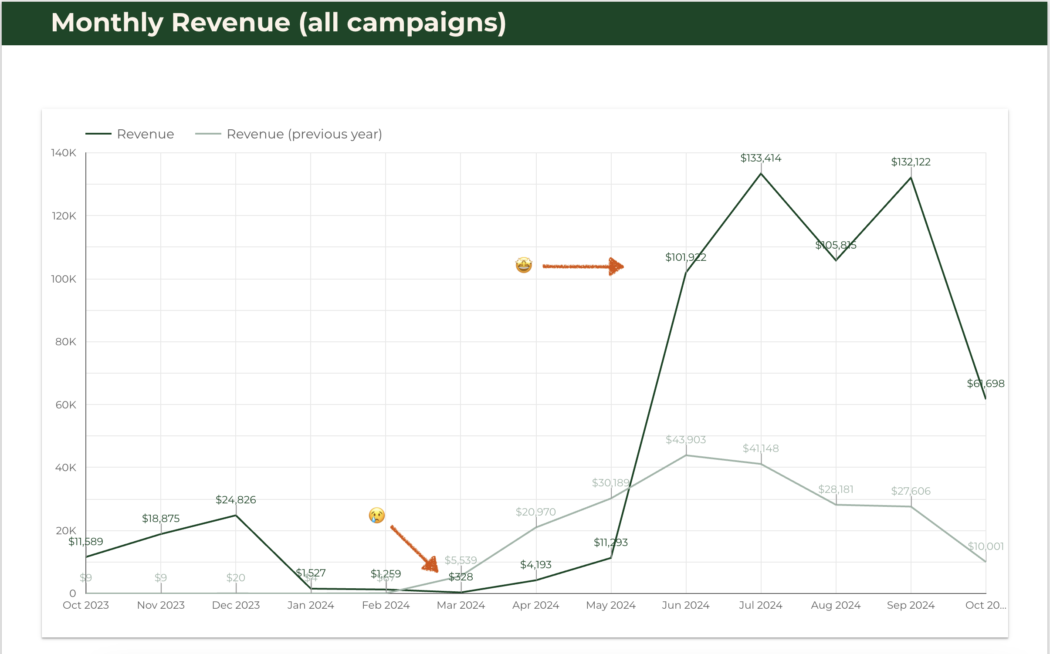Whether you’re running a gym, plumbing company or online store, the actions your potential customers take, like calling your business or buying a product, can make or break your Google Ads success. Conversion tracking helps you follow and measure these actions to make every dollar count.
Inside this Post

What is a Conversion?
A conversion is simply when someone does what you want them to do, like calling you to unclog drain if you’re a plumber, or filling out a form to claim a free gym class or buying a product online. It’s any action you want someone to take when they find you online, whether that be from paid ads or organically.
What is Conversion Tracking?
Conversion tracking is like having GPS for your ads, it shows exactly what your customers do after clicking your ad, so you know if they’re moving in the right direction toward becoming paying customers. Whether they make a purchase, fill out a form or book a call, conversion tracking captures that journey and reports it back to you.
If you’re a local gym owner, conversion tracking tells you whether your ads are generating new sign-ups for a free trial. If you’re an e-commerce business it shows how many purchases and the $ amount each ad generated. And if you’re a service-based business, like a plumbing company, it can track which campaigns led to phone calls or quote requests for example.
Conversion tracking allows you to:
- Measure Success – See which keywords and campaigns are driving valuable actions.
- Optimize Ad Spend – Stop wasting money in areas that don’t convert.
- Adjust Campaigns – Use data to tweak underperforming campaigns in real-time.
- Improve ROI – Focus your ad spend on actions that matter most to your business increasing the return on your investment.
One of the most powerful features of conversion tracking is that it feeds the data back into Google Ads. This helps Google’s algorithm optimize your campaigns by prioritizing keywords that generate the most valuable actions, whether that’s more sales or more leads. Over time, this makes your campaigns smarter and more cost-effective.
Types of Conversion Tracking
For small business owners, there are several types of conversions you can track. These are the most common if your goal for Google Ads are actionable results and not just general website traffic.
- Form Fills – Contact form, quote request or sign-up forms
- Phone Calls – Direct calls from ads or website click-to-call actions
- Bookings – Calendar-based appointments, free consultations
- Purchases – Completed online sales
Conversion Tracking Examples
Lead-Generating Actions: Form Fills, Calendar Bookings and Phone Calls
Tracking actions like form fills, booked calls or phone inquiries ensures your ad spend focuses on high-quality leads, not just web traffic. Whether it’s a local gym scheduling free trials, a bookkeeper booking discovery calls, or a plumber receiving emergency service calls, knowing which ads drive these key actions allows you to invest more confidently in the campaigns that work.
Purchase Conversions
e-Comm stores track purchases and the amount associated with the purchase to ensure their ads are driving profitable results. Understanding the revenue generated from their ad campaigns ensures they can measure their ROI and scale their business.
Don’t Mistake Page Views for Conversions
Tracking page visits as conversions is a common mistake I see in most accounts. Page views alone don’t guarantee valuable actions like purchases or form fills. Use Google Analytics to track page views and reserve ad spend for actions that generate revenue or high-quality leads.
Have a think about which types of conversions matter the most for your business. Do you rely more on phone calls, booked appointments or direct purchases? Tracking the right actions will ensure your Google Ads campaigns are driving more of the results that matter most to your bottom line.
How Can Conversion Tracking Improve Your Results
Understand What Drives Sales
Conversion tracking shows which ads or keywords lead to sales or inquiries. That way, you can push budget toward your top performers and cut out what’s not working, saving you money and increasing your ROI.
Cut Costs Without Cutting Corners
Every dollar counts when you’re running a small business. Conversion tracking helps you make smarter decisions by showing exactly what is performing and not performing well. This means you can save money by cutting areas that aren’t performing and reallocate your ad dollars to areas that are delivering real results.
Better Targeting
By seeing what actions people take (like filling out forms or making calls), you can better tailor your ads to attract more people who are likely to take those actions. This improves your chance of reaching people who will actually buy.
Optimize Your Ads for Higher ROI
Once you know which ads and keywords lead to the best results, you can make informed tweaks to increase your return on investment by driving better results without increasing your ad spend.
Can You Afford to Run Google Ads Without Knowing What Works?
Would you hire an employee, pay them a salary and benefits, without ever checking if they’re delivering the results they were hired for? Would you keep paying them, hoping they’re delivering, but have no idea if they are? Probably not.
Just as you would expect results from an employee, you should expect measurable outcomes from your ad campaigns.
Without conversion tracking in place, you risk:
- Wasting Money – Spending on ads that don’t bring results.
- Missed Opportunities – Overlooking campaigns or keywords that could deliver real value.
- Poor Decisions – Making ad changes based on guesses, not performance data.
- Slow Growth – Lacking insight into what drives leads and sales.
Related Post: Google Ads for Small Business
From Struggles to Six Figures: How Fixing Conversion Tracking Unleashed $133K in Ad Revenue
One of my clients in the tourism space came to me frustrated with their campaign performance. Some months seemed to be better than others, but they couldn’t figure out why their ad spend wasn’t producing consistent or profitable results.
When I reviewed their account, my first step was to dive into conversion tracking, which is often the sneaky culprit behind non-performing campaigns. In fact, 90% of accounts I audit have tracking issues, either it’s set up incorrectly or missing altogether. Although the client followed their booking software’s setup guide, some critical steps were missed, like adding conversion actions to track the paid transactions and amounts and ensuring those conversions reported back to Google Ads properly. Once I fixed those gaps, we tested everything to ensure it worked seamlessly.
With conversion tracking in place and solidly tested the same ad spend that had generated just $328 in ad revenue was now generating $100K+! They continue to generate consistent, profitable results each month. When I say conversion tracking is a really big deal – I mean it!

Final Thoughts
If you’re spending money on ads, conversion tracking isn’t just a ‘nice-to-have’, it is essential. Without it, you’re left guessing which efforts are driving real results. Take the time to set up conversion tracking before your next campaign so you can spend smarter, grow faster and make every dollar count.
Not sure where to start or want a 2nd pair of (expert) eyes to evaluate your conversion tracking – take a look at my Google Ads services or book a call with me and let’s take a look together!
